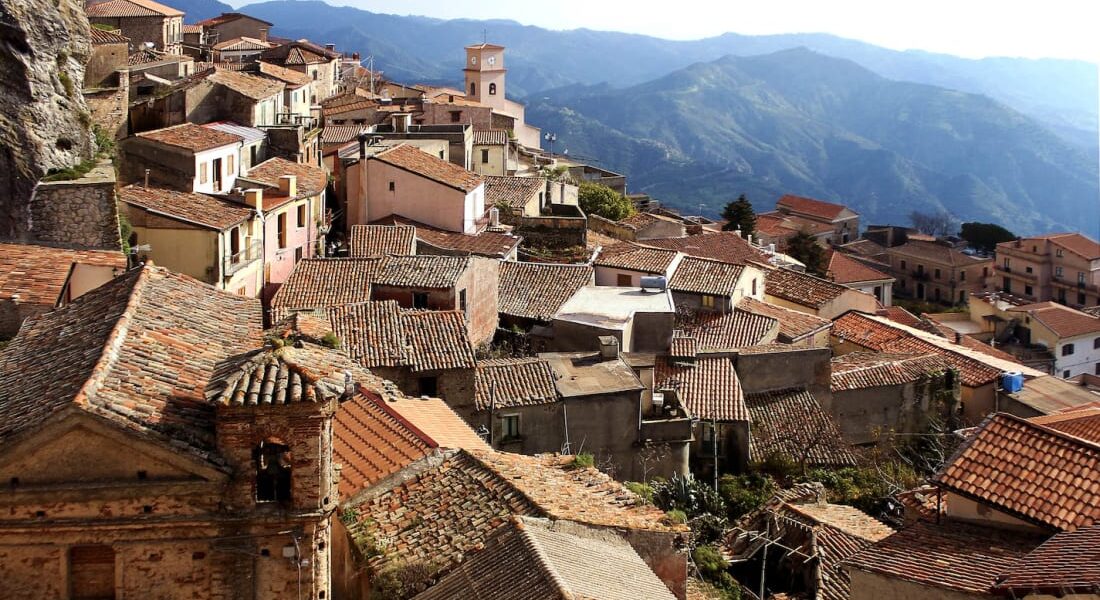Bova is one of the Greek-Bovesian speaking villages of Bovesia, one of the two Griko-speaking areas of southern Italy. The village is inscribed into I Borghi più belli d'Italia (The most beautiful villages in Italy) list.
Capital of the Greek Calabria and one of the most beautiful villages in Italy, Bova preserves an ancient history. The origins of Bova are linked to a legendary Greek queen, Oichista, who imprinted her footprint on the highest point of the fortress overlooking the village.
The ancient origins of the city of Bova (Vua) are testified by the numerous archaeological finds found near the Norman Castle dating back to the Neolithic period, even if the first historically documented evidence of the existence of Bova dates back to the early years of the second millennium, when between 1040 and 1064 the Normans imposed themselves on Arabs and Byzantines in the domination of Sicily and Calabria.
The Italy Together YouTube channel wrote:
"On this walking tour, I take you to the old town of Bova, one of the last Griko-speaking cities, where I found so much hospitality, like a free wine tasting from a total stranger! I was walking around and filming and he invited me to his house, where he produces traditional local wine. A wonderful experience!
"It is kind of difficult to arrive in this town, the road is full of curves, climbs and some areas in poor condition. It is best to arrive by car or public bus from Bova Marina.
"If you visit Reggio Calabria or the south of Calabria, do not miss this town. Another nearby town that cannot be missed is Pentedattilo."
The Griko people (Greek: Γκρίκο), also known as Grecanici in Calabria, are an ethnic Greek community of Southern Italy.
They are found principally in regions of Calabria and Apulia (peninsula of Salento). The Griko are believed to be remnants of the once large Ancient and Medieval Greek communities of southern Italy (the ancient Magna Graecia region).
Greek people have been living in Southern Italy for millennia, initially arriving in Southern Italy in numerous waves of migrations, from the ancient Greek colonisation of Southern Italy and Sicily in the 8th century BC through to the Byzantine Greek migrations of the 15th century caused by the Ottoman conquest.
In the Middle Ages, Greek regional communities were reduced to isolated enclaves. Although most Greek inhabitants of Southern Italy have become entirely Italianised over the centuries, the Griko community has been able to preserve their original Greek identity, heritage, language and distinct culture, although exposure to mass media has progressively eroded their culture and language.
The Griko people traditionally speak Italiot Greek (the Griko or Calabrian dialects), which is a form of the Greek language. In recent years, the number of Griko who speak the Griko language has been greatly reduced; the younger Griko have rapidly shifted to Italian. Today, the Griko are Catholics.
READ MORE: Magna Graecia: Casapulla, The Town Of Apollo.


